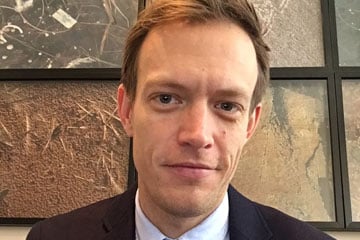
An Iranian LGBTQ activist based in Germany has been awarded damages by a Canadian court for egregious defamations, after the judge ruled that the defendant was most likely responsible for anonymous web posts.

An Iranian LGBTQ activist based in Germany has been awarded damages by a Canadian court for egregious defamations, after the judge ruled that the defendant was most likely responsible for anonymous web posts.
Shadi Amin, otherwise known as Soheila Amintorabi, brought claims against Arsham Parsi, otherwise known as Alireza Abrishami, in Toronto Small Claims Court because she believed he was behind anonymous posts on multiple websites and letters sent to Amnesty International and the BBC. Parsi, who is an Iranian LGBTQ activist based in Toronto, maintains that he was not responsible for the posts. Amin says that the anonymous posts hurt her career and personal relationships.
“I was hurt in all of my relations, with my work with my colleagues, with journalists, with all the organizations, it was always something between us,” she says. “I knew that a lot of people have read these nasty articles and I knew that a lot of people don’t ask me about them, but I could see in their eyes that something was always a big question.”
The posts allege, among other things, that Amin took part in money laundering, homophobia and sexual assault. After three years of the anonymous posts, Amin asked a tech-savvy friend to trace the origins of one of the websites. She found that it was published under a web hosting account belonging to Parsi. During the proceedings, a tech expert testified that the website could be connected to another website that was operated by Parsi.
Amin’s lawyer, Cory Wanless of Klippensteins Barristers and Solicitors, says he’s happy with the ruling because it is often hard to prove the identity of the creator of a website.
“It is fairly easy with a little bit of know-how to create a website that is untraceable,” he says. “And it is very difficult and very expensive and often very unsuccessful to try and get the internet companies to give you the information that you might need to go after the person who is responsible for the anonymous, defamatory website.”
Although he admitted the connection, Parsi implied throughout the proceedings that he must have been hacked, or that someone else was actually the author of the posts. Deputy Judge Christopher Ashby ruled that Parsi was responsible for the anonymous posts on a balance of probabilities, as he did not prove that he was hacked or that someone else wrote the posts on his website. He ruled that Parsi pay Amin $25,000 in damages.
Behrouz Amouzgar, Parsi’s lawyer and founder of Lexpand PC, says that although they respect the ruling made by Judge Ashby, the fact that the ruling was made on a balance of probabilities means that the court did not conclusively prove that Parsi was the one who made the posts.
“If it was beyond a reasonable doubt, absolutely this wouldn’t have happened,” he says. “And I’m not saying it should be beyond a reasonable doubt, I’m just saying that this judgment doesn’t mean that with certainty my client was responsible. My position is that he wasn’t.”
Amouzgar says he is still waiting for instructions from Parsi as to whether or not they will appeal the ruling.
Amin says the defamatory online statements were particularly damaging to her work because Iranian LGBTQ people are vulnerable to extreme persecution. As an exile working with the LGBTQ community in Iran, the people she is trying to help have to use the internet to make sure she is a safe and trustworthy person to work with.
“Everybody who’s searched my name has come to these nasty articles and that’s why it makes it more important to have this judgment, so when they go to Google, when they search my name, these articles [about the judgment] will be trump,” she says.
Wanless says he is happy that he could help Amin restore her credibility in order to continue her activist work.
“It’s important to her that she can do this work and it’s very gratifying as a lawyer to have represented her and to have seen justice to be done,” he says.